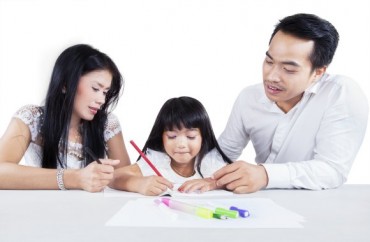
Even though some 300,000 students have started homeschooling just since 2010 and studies showing that homeschooled children fare better academically than their public school counterparts, at least one education professor says we still need to know more about the practice.
“The jury is still out,” Virginia Union University’s Matthew Lynch says.
Lynch also would like to see homeschooling parents go through training like that which teachers receive.
“Without that type of rigorous training, I just wouldn’t feel comfortable allowing somebody to home-school their kids,” he says. “[T]here needs to be some type of quality control.”
The Richmond Times-Dispatch reports:
Before teachers are allowed to enter a classroom, they must go through programs that expose them to courses that teach classroom management, assessment and curriculum development, Lynch said. Even then, he added, many find it difficult to teach and many aren’t able to do it effectively.
“To have a high school diploma and all of a sudden start teaching students or teaching your own child? Even though you have their best interest at heart and you may want the best for them, you may not be able to provide that,” he said.
According to the National Home Education Research Institute, home-schooled students “typically score 15 to 30 percentile points above public school students on standardized academic achievement tests.”
But the International Center for Home Education Research, an organization that studies home schooling and does not advocate for or against the practice, said evidence gathered in studies on performance have “been fraught with controversy because most of the studies that have received widest attention have been interpreted to say something they do not and cannot.”
The problem, according to the center and other researchers, is that studies are often made up of volunteers responding to invitations from advocacy groups. These participants tend to be “far whiter, more religious, more married, better educated and wealthier than national averages.”
“It is thus impossible to say whether or not home schooling as such has any impact on the sort of academic achievement measured by standardized tests.”
But with regards to results for homeschooled African-American children, EAGNews.org notes that NHERI’s research shows “black homeschool students to be scoring 23 to 42 percentile points above black public school students.”
MORE: Homeschooling Growing 7 Times Faster than Public School
Professor Lynch’s concerns about quality notwithstanding, worry about academics isn’t even the first or second reason cited as to why parents homeschool: Concerns about school environment and desire for moral instruction occupy the top two spots, according to the 2011 National Household Education Survey.
Read the full Times-Dispatch and EAGNews.org articles.
Like The College Fix on Facebook / Follow us on Twitter
IMAGE: Shutterstock






Please join the conversation about our stories on Facebook, Twitter, Instagram, Reddit, MeWe, Rumble, Gab, Minds and Gettr.